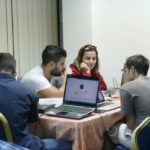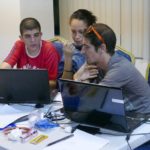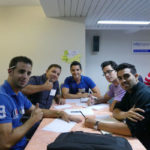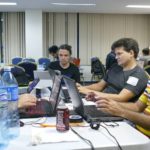
The return of Startup Weekend Havana
HAVANA — “It’s not an event of pure technology; it serves to identify problems and solve them,” says Alex Medina, member of Merchise Startup Circle, a group that, for the second time, is organizing the Startup Weekend Havana.
Gathered are young entrepreneurs of various profiles (designers, programmers, economists, etc.) who — from Friday to Sunday — create the prototype of a business that’s almost ready to be implemented.

From Aug. 5 to Aug. 7, at the Sheraton Four Points Hotel (Havana’s former Quinta Avenida Hotel), the following will happen: on the afternoon of the first day, each participant may pitch an idea in one minute. Then, a vote will be taken to choose the three proposals the participants liked best. On the basis of the most popular initiatives, several teams will be formed and will construct those projects during Startup Weekend.
Saturday and Sunday, the groups will develop the product in question and do an analysis of its viability. Sunday night, they will submit their projects and a panel of judges will present the awards.
“We don’t expect people to end up with a functioning product; after all it’s a weekend,” says Alex. “But they could create a business plan, a more elaborate concept — or they might turn to another idea that seems better to them.
“What Startup Weekend wants is for people to learn to put together an initiative in a collaborative framework. A hall with everyone making noise and working with people they probably didn’t know.”
For example, the enterprise that won last year’s award was Mi Escaparate (My Display Case), a platform that connects people who sell second-hand clothing with likely buyers. The runner-up, Sírvete (Help Yourself), is an app that suggests recipes on the basis of the ingredients available. And Up Up looked for a mechanism to publish in social networks a short time after connecting to the Internet.
Jorge Romero, a member of Merchise, points out that nonprofit projects may emerge, so long as they demonstrate that they are sustainable. The point is to diagnose needs and find solutions for them.
“It’s not a question of making apps for mobiles but to solve problems with the aid of technology,” Alex stresses.
Startup Weekend — which is owned by Techstars — is an international web that has conducted events of this type in more than 1,024 cities in 135 countries, with more than 480,000 participants. The Havana edition is the only one where attendees need not pay anything; that’s an exception to the organization’s rules, granted at Merchise’s request.
Normally, though that payment is merely symbolic and doesn’t cover the weekend costs, it contributes funds for logistics. In turn, SW Havana will depend only on sponsorships, and the Cuban organizers must be capable of convincing potential sponsors to contribute to the expenses of the gathering.
“We adjust the capabilities to the budget,” Alex explains. “Then, the more sponsors we have, the more participants we can admit.”
Techstars does not underwrite events but creates a fund where the donations are collected and itself hires the services needed at every city. Thus, the local coordinators don’t have to deal with the funding and the financial aspect is more transparent.
The organization sends a facilitator, who is entrusted with guiding the event according to global directives. In addition, it makes sure that the organizers at each place have a profile similar to that of the participants, because that way they know the requirements that may show up.
“We organizers are the ones who know that Nauta crashes and that we’re not going to be connected at all times,” Alex says. [Nauta is Cuba’s domestic e-mail service.]
The prizes are up to the sponsors and usually are credits in specific platforms that allow the business to prosper, some months without having to pay for its website. Prizes also include access permits or the possibility of taking on a larger number of users, etc.
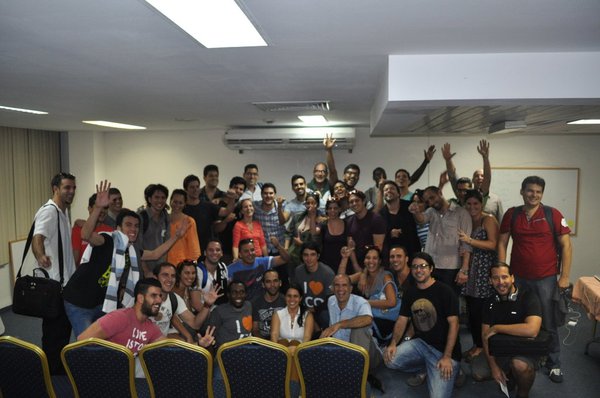
Merchise has contacted AirBnB, Google, Stripe and PayPal, asking them to sponsor the Startup Weekend in Havana. So far, the only sponsor is .Co, the Colombian domain, which provided support last year.
“What happens later will depend on each team,” Alex adds. “If the project dies, it’s not a disaster, because the SW’s objective is not for it to remain but for [the entrepreneur] to remember what he learned and, when starting another project, to apply the experience of that weekend. If the project goes on, fine; if it doesn’t, no matter.”
Engage Cuba has collaborated in the promotion of the event, both in the media and among likely sponsors.
“We play no official role in SW Havana, although the self-employed community of entrepreneurs has inspired us greatly,” says Michael Maisel, director of Engage Cuba’s foreign affairs. “It is very positive to see that there’s almost an ecosystem of entrepreneurs who help each other.”
Meanwhile, by mail and on Twitter, several applications have arrived from Cubans living in other countries who say “Hey, I want to go.” To Manuel Vázquez, a member of Merchise, the Startup Weekend represents a cultural change.
“The vision of creating something that someone can self-sustain didn’t exist years ago,” Vázquez said. “In other words, people no longer think in terms of ‘in what company can I work?’ but ask ‘let me see what I can do.'”

